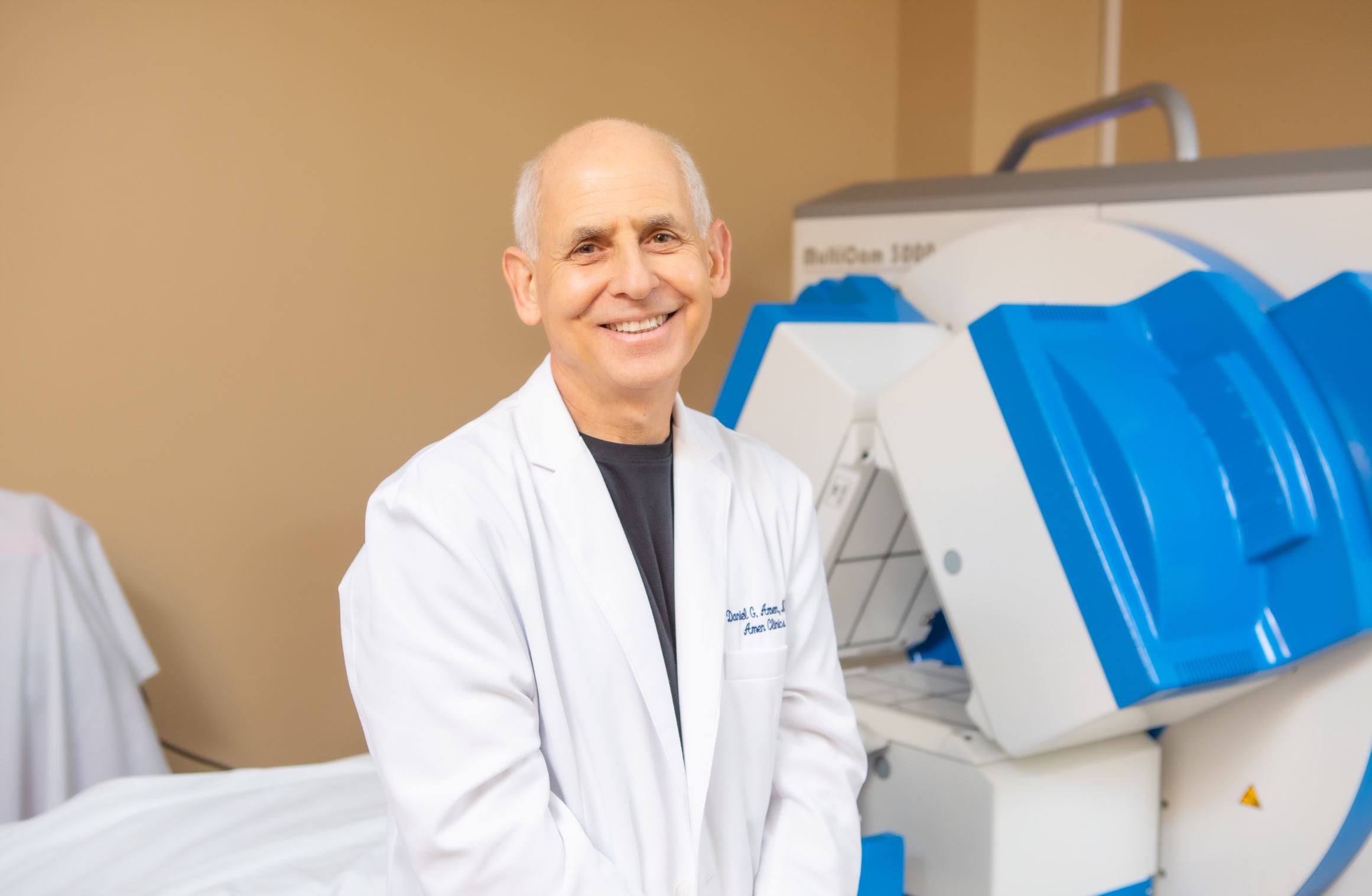The Future Of Psychiatry with Dr. Daniel Amen

Imagine if we worked on getting the physical functioning of our brain right To heal our mental health issues? Is this the Future psychiatry? We Spoke to Dr. Daniel Amen, a NY Times best-selling author, double board-certified psychiatrist, brain-imaging pioneer and the director of the Amen Clinic. Dr Amen is a celebrity practicing doctor working with everyone from Justin Bieber to Bella Hadid and is watched by millions of viewers on his breakthrough public television programs about brain health. Dr. Amen's research was listed as one of the top 100 stories in science in 2015 by Discover Magazine. Dr. Amen Is Changing the way we look at the brain and its direct connection to all things wellness. Dr. Amen Tells us Why he thinks The Psychiatric model today is broken, What the greatest contributors to mental health conditions are that he's seeing in his clinic and discusses some of his top advice for those wanting better mental health without going the Prescription route.
What is the SPECT scan, and how do you use this to find biomarkers for mental illnesses?
Brain SPECT imaging evaluates blood flow and activity in the brain and shows three things—healthy activity, too little activity, or too much activity. Then it is our job to help balance the brain—calming overactivity or stimulating an underactive brain.
You have mentioned many times that “Psychiatry is broken.” Can you explain more what you mean by this?
Psychiatry is the only medical field that does not look at the organ it treats and is still diagnosing people the same way Abraham Lincoln was diagnosed in the 1800s. A new study found that psychiatric diagnoses are scientifically meaningless, and psychiatric medications have high failure rates, as over half of depressed people don’t get better from antidepressants.
And where do you see the future of Psychiatry?
The psychiatrist’s diagnostic and treatment toolbox increasingly includes advanced brain technology, such as SPECT. Importantly, brain SPECT imaging reveals that many psychiatric conditions have multiple subtypes and can help identify them for more targeted treatments.
What is the greatest contributor to mental health conditions that you are seeing in your clinics?
Mild head trauma is a major cause of psychiatric illness and very few people know it, because most mental health professionals never look at the brains of their patients. Brain SPECT imaging shows that 40% of Amen Clinics patients have a past head injury, and many of them don’t remember getting hurt.
What is the connection between mental health and addiction?
Brain dysfunction is the #1 reason why people drink too much, use drugs, and can’t break their bad habits. People often self-medicate with alcohol or drugs to cope with their uncomfortable feelings.
What are some steps to protect your pleasure centers?
To protect the brain’s pleasure centers, limit the use of constantly stimulating devices and activities, such as smart phones, gaming, shopping, pornography, scary movies, and high-risk activities. Seek pleasure in the little things in life—the micro-moments of happiness like a walk with a friend, holding hands, or a great meal.
How Does Stress Change the Structure of the brain?
Chronic stress has been shown to decrease the size of the hippocampus, an important part of the brain’s memory centers, and the prefrontal cortex, which is involved in focus, planning, and impulse control.
How do hidden infections in the body impact our mental health, and how often are you seeing this in the clinics?
Infections like Lyme disease are a major cause of psychiatric and cognitive problems that few medical professionals recognize. With the pandemic, we are seeing more patients struggling with long-COVID symptoms, including anxiety, depression, and brain fog.
What role does the limbic system play in our health? And how can we make sure this system is regulated?
The limbic system is considered the brain’s emotional center. Too much activity here is associated with negativity, depression, and physical pain. Listen to soothing music, meditate, and strengthen social ties to calm your limbic system.
What are natural ways to help anxiety?
Meditation, prayer, deep breathing, and learning to manage your mind by killing the ANTs (automatic negative thoughts) can help calm anxiousness. The supplement GABA promotes relaxation in the body and mind.
What are the ways we can help ourselves when dealing with depression without taking an Antidepressant ?
Overcoming negativity by killing the ANTs (automatic negative thoughts), starting every day by saying, “Today is going to be a great day,” and taking mood-boosting nutraceuticals like saffron are natural ways to reduce depression.
What are your top supplements for mental health?
For optimal brain health, everyone should be taking a multi-vitamin/mineral, omega-3 fatty acids, vitamin D (if your levels are low), and probiotics (because gut health is tied to brain health).
In your book The End of Mental Illness you emphasize the power of purpose and the spiritual circle for mental health , can you go into this a little deeper for us ?
Having a sense of purpose, as well as connections to something greater than ourselves reminds us that our lives matter, we have a role to play and a calling to fulfill. In a large study, purposeful people were found to have better mental health, less depression, greater happiness and satisfaction, more personal growth and self-acceptance, and better sleep. Without this spiritual connection, many people experience a sense of despair or meaninglessness, which can lead to depression.
What is the BRIGHT MINDS approach to eliminate mental health issues?
BRIGHT MINDS is a mnemonic I use to help people remember the 11 major risk factors that steal your mind and contribute to mental health problems. Once you reduce your risk factors, your brain—and mental well-being—will be healthy.





